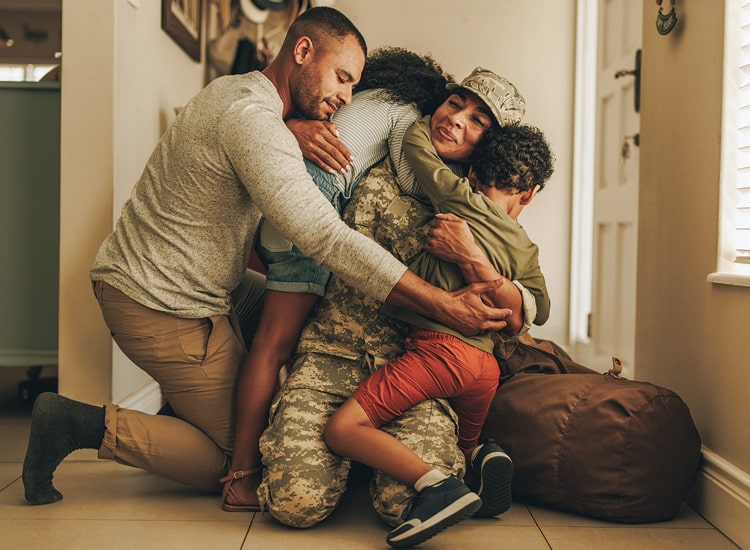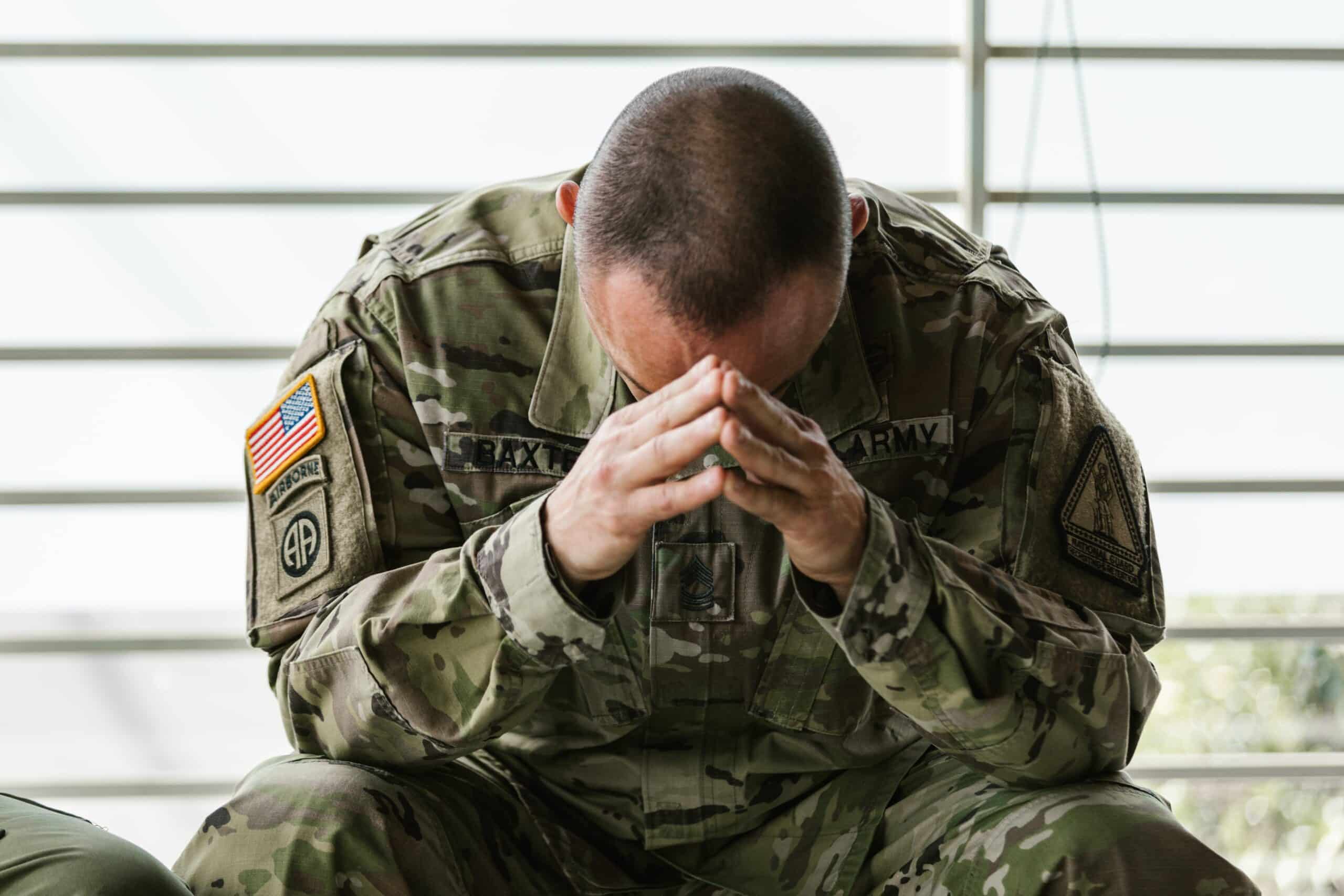According to the National Institute of Mental Health, anxiety disorders affect nearly 19.1% of adults in the United States. These conditions can make it hard to work and stay financially stable, affecting a person’s ability to sustain themselves. Today, we’ll look at the top five anxiety disorders that could make a Veteran eligible for a VA anxiety rating.
Veterans living with a service-connected anxiety disorder may sometimes hesitate to seek support due to limited mental health awareness in their communities. Although mental health is not visible like a physical wound, it is still equally important and should receive the same level of treatment.
Nearly 20% of Veterans who served in Iraq or Afghanistan suffer from either major depression or a generalized anxiety disorder. This statistic serves as a stark reminder that mental health struggles among Veterans are not only common, but closely connected to their service.
1. Obsessive Compulsive Disorder (OCD)
Obsessive Compulsive Disorder is a mental illness characterized by intrusive thoughts and repetitive behaviors. People with OCD have time-consuming symptoms that can cause significant distress or interfere with daily life.
Veterans with OCD can receive a rating of up to 100% if their condition greatly affects their ability to work or function in society.
2. Panic Disorder
Panic disorder is a type of anxiety disorder that involves sudden and recurring panic attacks. Physical symptoms such as heart palpitations, sweating, and shortness of breath often accompany these attacks.
To qualify for a VA rating for panic disorder, the Veteran’s condition must be caused or worsened by military service. Panic disorders can be rated at 0%, 10%, 30%, 50%, 70%, or 100%, depending on the severity of the symptoms.
3. PTSD
PTSD, or Post Traumatic Stress Disorder, is a common anxiety disorder in Veterans, especially those who have been in combat or other traumatic situations. Symptoms may include flashbacks, nightmares, and avoidance of triggers related to the trauma.
VA disability ratings range from 0% to 100%, but for PTSD claims, the standard ratings are 0%, 30%, 50%, 70%, and 100%. These ratings aim to assess the severity of your condition and its impact on your ability to work and handle daily life tasks.
4. Social Anxiety Disorder
Social anxiety disorder is defined by a profound fear and unease in social situations. This can pose challenges for Veterans when it comes to participating in activities such as job interviews or workplace interactions. Symptoms may include sweating, trembling, and difficulty speaking.
Veterans can receive a VA rating for social anxiety disorder if their service-connected condition significantly impairs their ability to work or function in society. Ratings range from 0% to 100%, depending on the severity of the symptoms.
5. Generalized Anxiety Disorder (GAD)
Generalized Anxiety Disorder is a chronic condition that involves excessive worry and anxiety about everyday situations. To receive a VA rating, the Veteran’s GAD must cause significant impairment in their work or daily functioning. GAD is rated on the same scale as other anxiety disorders: 0%, 10%, 30%, 50%, 70%, and 100%.
Is it difficult to get a VA disability rating for an anxiety disorder?
It can be challenging to get an anxiety VA rating due to the subjective nature of anxiety disorders and the variability in how they affect individuals daily. However, it’s important to remember that you are not alone in navigating this process. Rest assured that the VA recognizes and acknowledges mental health disorders, including anxiety disorders.
To increase your chances of success, it’s crucial to provide comprehensive medical evidence, including a diagnosis from a healthcare professional and documentation of ongoing treatment. Your claim should demonstrate how your anxiety disorder impacts your everyday life, particularly your ability to work and interact socially. Remember, the VA is looking for substantial evidence to support your claim, so make sure to include all relevant information. Additionally, you must show that your anxiety disorder was caused or worsened by your military service.

Seeking Support
Whether you’re currently serving, transitioning out of the military, or have been out for years, know that you are not alone in your struggles with anxiety. Seeking help is not a sign of weakness, but a brave step towards healing and living a fulfilling life. Don’t hesitate to reach out and get the support you deserve.
If you identify with any of the conditions listed above, Veteran Ratings is here to help guide you through the process. To find out how we can support you, set up a risk-free consultation by calling us at 619-679-9504 or visit our website at VeteranRatings.com for more detailed information.

Resources
- Veterans Crisis Line: A free, confidential resource that connects Veterans in crisis and their families and friends with qualified, caring VA professionals. It provides immediate assistance.
- National Center for PTSD: Provides information and resources about PTSD. The organization has numerous resources specific to Veterans including self-help tools and apps.
- Give an Hour: A nonprofit organization providing free mental health services to U.S. military personnel and families affected by the current conflicts.
- Anxiety and Depression Association of America (ADAA): Offers resources for understanding symptoms of anxiety disorders and depression, and provides links to various forms of treatments, including self-help strategies.
- VA Mental Health Services: Provides a range of mental health services, including therapy and counseling, to Veterans.
